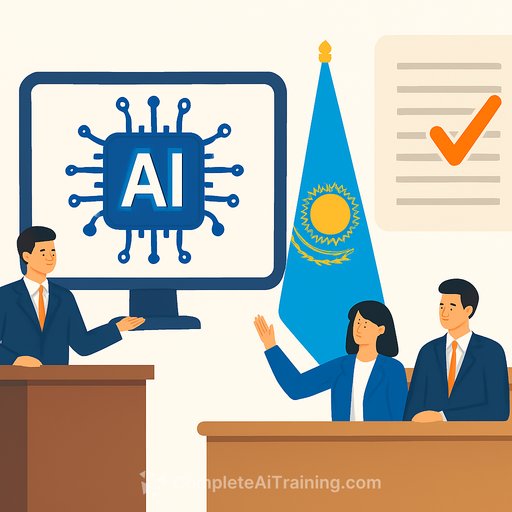Bench IQ Raises $5.3 Million to Grow AI Legal Platform
Toronto-based legaltech startup Bench IQ secured $5.3 million USD ($7.3 million CAD) in seed funding to expand its AI platform that analyzes judicial rulings for lawyers. The company plans to broaden its coverage to include US state and Canadian judges. This funding round, which closed earlier this year, was led by Inovia Capital and Battery Ventures and included $1 million USD in debt. Other investors were CIBC Innovation Banking, MVP Ventures, Maple VC, and Haystack VC, bringing Bench IQ’s total funding to $7.4 million USD.
AI Platform Helping Lawyers Prepare for Litigation
Bench IQ’s platform provides lawyers with reports and intelligence on judges' past rulings, helping them prepare more effectively for litigation. CEO Jimoh Ovbiagele explained that the software compiles a proprietary dataset of legal rulings that often lack written decisions. The platform identifies patterns in how judges have approached cases, currently focusing on federal court judges in the US.
The startup plans to extend its platform to cover US state judges and Canadian judges, with ambitions to serve a global market.
Unique Data Source and Competitive Edge
Ovbiagele declined to reveal the company’s data sources, citing it as part of a “secret formula.” However, Bench IQ stated its dataset captures the reasoning behind many US judicial rulings that do not result in written opinions. This data, Ovbiagele claims, has never been analyzed before, making it unavailable to large language models like OpenAI’s GPT or Google’s Gemini.
While client names remain confidential, Ovbiagele shared that four of the top five AmLaw 200 firms use Bench IQ’s product. The startup plans to use the new funding to enhance its AI capabilities and grow its team, currently at eight, focusing on product development and customer roles.
Founder’s Background and Legal Challenges
Jimoh Ovbiagele is a repeat legaltech founder. In 2015, he launched Ross Intelligence, a Y Combinator-backed company that used machine learning to rank how well case law quotes answered natural-language questions. Ross Intelligence raised over $17 million CAD in funding rounds led by Inovia Capital.
In 2020, Ross faced a lawsuit from Thomson Reuters for copyright infringement related to the use of headnotes from Thomson Reuters’ Westlaw platform. Ross countersued but eventually shut down operations due to fundraising challenges and legal fees. Earlier this year, a US federal judge ruled against Ross, determining its use of Westlaw content was not “fair use.” Thomson Reuters expressed satisfaction with the ruling, emphasizing the importance of copyright protections for AI innovation.
Ross’s founders were granted an appeal in June. The US Third Circuit Court will decide whether exact quotes from case law can be copyrighted and if their use in AI training qualifies as fair use. Ovbiagele reflected that the experience taught him startups should avoid confronting monopolies directly and instead build strength in adjacent markets before challenging them.
One of Ross’s counterclaims accused Thomson Reuters of antitrust violations for tying its case law database to Westlaw’s search tools. However, a federal judge granted Thomson Reuters summary judgment, citing insufficient evidence from Ross.
AI’s Growing Role and Industry Concerns
The legal sector is increasingly adopting AI tools that automate tasks such as client intake and document drafting. Companies like Clio and Harvey offer these solutions, while established players like Thomson Reuters and LexisNexis have launched their own AI products.
Despite growing adoption, concerns about data privacy, security, and accuracy are slowing full acceptance. A 2024 survey of 443 Canadian legal professionals by legaltech company Appara found 26% worried about AI’s risks and ethical implications, while 23% distrusted how their data was used.
For legal professionals interested in AI tools and training, exploring courses and resources on Complete AI Training may offer practical insights into AI applications in the legal field.
Update (8/29/25): This article includes additional comments from Jimoh Ovbiagele and Thomson Reuters.
Your membership also unlocks:





